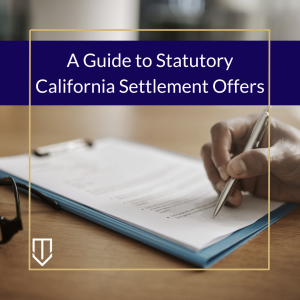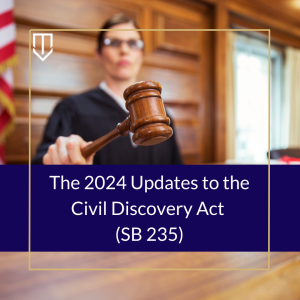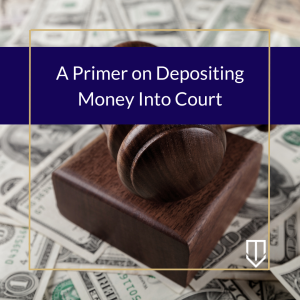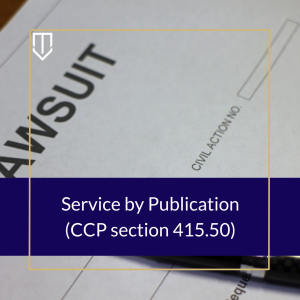 A fiduciary duty is a special kind of professional relationship that forms between an individual or entity and their client. California recognizes many types of fiduciary relationships; each carrying its own duties and expectations. Understanding how fiduciary relationships function, under what circumstances they are established, and how they can be violated will help you better protect yourself when navigating these professional relationships.
A fiduciary duty is a special kind of professional relationship that forms between an individual or entity and their client. California recognizes many types of fiduciary relationships; each carrying its own duties and expectations. Understanding how fiduciary relationships function, under what circumstances they are established, and how they can be violated will help you better protect yourself when navigating these professional relationships.
What is a Fiduciary?
A fiduciary is an individual who holds a special position of legal responsibility to their client, as a personal representative, guardian, trustee, conservator, attorney-in-fact, or custodian under the California Uniform Transfer to Minors Act, or any other applicable legal representative. (Prob. Code., § 39.) Fiduciary relationships commence when the fiduciary begins acting on behalf of their client for the client’s benefit.
 California Partition Law Blog
California Partition Law Blog


 In California, spouses and registered domestic partners are afforded specific legal protections because of their status as a “spouse” or “registered partner.” A putative spouse is different from an actual marriage and a registered domestic partnership but exists to provide the same protections in specific circumstances. The Putative Spouse Doctrine protects Putative Spouses when their marriage or registered domestic partnerships turns out to be invalid. Understanding what a putative spouse is will help ensure your property and interests are protected in the unfortunate circumstance that your marriage or registered domestic partnership is invalid.
In California, spouses and registered domestic partners are afforded specific legal protections because of their status as a “spouse” or “registered partner.” A putative spouse is different from an actual marriage and a registered domestic partnership but exists to provide the same protections in specific circumstances. The Putative Spouse Doctrine protects Putative Spouses when their marriage or registered domestic partnerships turns out to be invalid. Understanding what a putative spouse is will help ensure your property and interests are protected in the unfortunate circumstance that your marriage or registered domestic partnership is invalid. In many contracts, the parties know that one person will be harmed if the other one breaches, but also realize that damage would be hard to calculate. So, what is a person to do to protect themselves from loss while also living their life in a way to pursue their goal? How can the law help people in that situation?
In many contracts, the parties know that one person will be harmed if the other one breaches, but also realize that damage would be hard to calculate. So, what is a person to do to protect themselves from loss while also living their life in a way to pursue their goal? How can the law help people in that situation? An Assembly bill applying to decedents’ estates was finalized on August 29, 2024. The bill will amend six sections of the Probate Code (Cal. Prob. Code § 13100-13101, 13150-13152, 13154) and repeal one section (Prob. Code § 13158). This is significant because it impacts how successors of decedents can manage a
An Assembly bill applying to decedents’ estates was finalized on August 29, 2024. The bill will amend six sections of the Probate Code (Cal. Prob. Code § 13100-13101, 13150-13152, 13154) and repeal one section (Prob. Code § 13158). This is significant because it impacts how successors of decedents can manage a  The purpose of this article is to explain what a trustee removal petition is. In a
The purpose of this article is to explain what a trustee removal petition is. In a  The purpose of this article is to explain what a short cause trial is. A short cause case is a civil case where the parties or court estimate the trial will take five hours or less. Because of a short cause trial’s brevity, these types of cases can get priority in the courtroom. These trials can fill time slots between longer, bigger cases so they may be heard earlier.
The purpose of this article is to explain what a short cause trial is. A short cause case is a civil case where the parties or court estimate the trial will take five hours or less. Because of a short cause trial’s brevity, these types of cases can get priority in the courtroom. These trials can fill time slots between longer, bigger cases so they may be heard earlier. California Code of Civil Procedure section 998 encourages parties involved in legal disputes to settle prior to trial. According to this law, either party can present a written settlement offer to the other party up to ten days before the trial begins. (CCP § 998(b).)
California Code of Civil Procedure section 998 encourages parties involved in legal disputes to settle prior to trial. According to this law, either party can present a written settlement offer to the other party up to ten days before the trial begins. (CCP § 998(b).) In almost all civil litigation in California, a major issue is the formal process of exchanging information and documents that address claims or defenses in dispute between the parties. In this system, discovery is “self-executing.” That means that no party to the lawsuit has any obligation to provide any information, unless requested through the formal methods outlined in the Civil Discovery Act.
In almost all civil litigation in California, a major issue is the formal process of exchanging information and documents that address claims or defenses in dispute between the parties. In this system, discovery is “self-executing.” That means that no party to the lawsuit has any obligation to provide any information, unless requested through the formal methods outlined in the Civil Discovery Act. Under certain special circumstances, money can be deposited with the court to safeguard during lawsuits under Code of Civil Procedure sections 572 and 573. The justification for such a rule is that, if the court doesn’t protect the money, the other party may spend it, rendering a plaintiff’s victory somewhat hollow.
Under certain special circumstances, money can be deposited with the court to safeguard during lawsuits under Code of Civil Procedure sections 572 and 573. The justification for such a rule is that, if the court doesn’t protect the money, the other party may spend it, rendering a plaintiff’s victory somewhat hollow. Service of process is an important aspect of every lawsuit filed in California. If a defendant is not served and thus does not receive notice of a lawsuit, then any judgment entered against them is void, and the plaintiff will have to begin the litigation process all over again.
Service of process is an important aspect of every lawsuit filed in California. If a defendant is not served and thus does not receive notice of a lawsuit, then any judgment entered against them is void, and the plaintiff will have to begin the litigation process all over again.